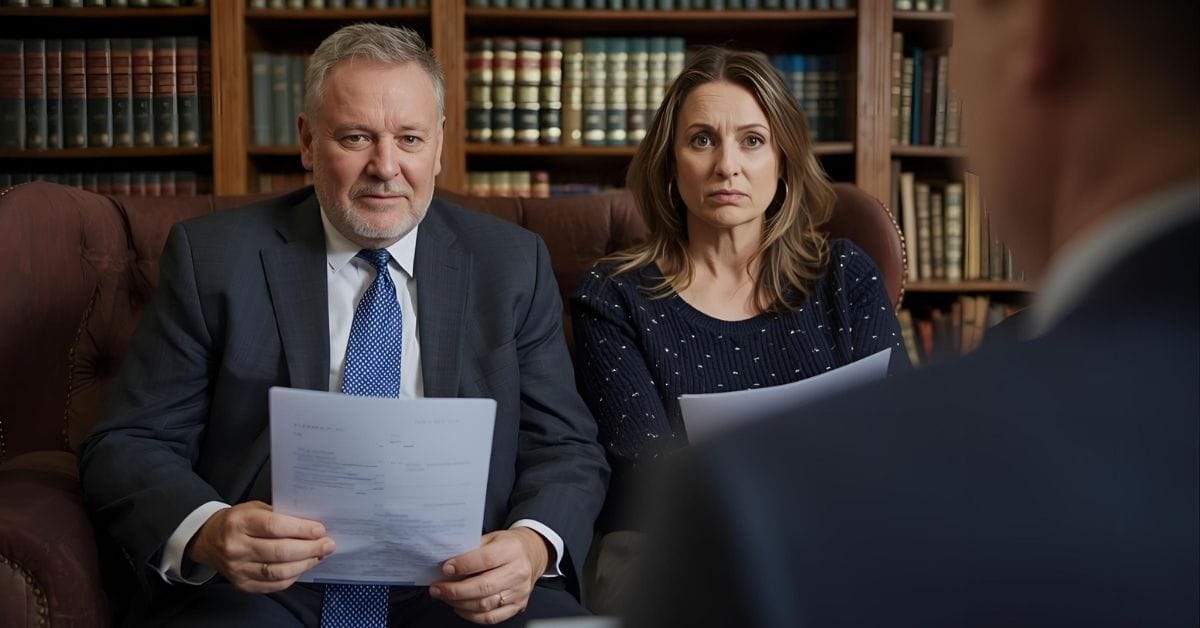Starting a second marriage or de facto relationship is a fresh chapter, but it also brings practical questions about [...]
How to Find Offshore Funds in an Australian Divorce
If you are going through a separation and worry a party has shifted money outside Australia, there are lawful steps to find hidden assets in divorce. A family lawyer coordinates disclosure and subpoenas while a forensic accountant investigates financial transactions and explains the true financial circumstances. For clear next steps, contact QFLP for confidential guidance today.
How Tracing Offshore Funds Works in Australian Family Law
Tracing follows money flows to identify foreign assets and financial resources that belong in the asset pool for divorce and property settlement.
Lawyers request disclosure, experts analyse records, and the court can make orders so parties disclose all relevant information until the family law matter is finalised.
How the Pieces Fit Together
- Lawyer sets scope and timelines under family law rules.
- Forensic accountant reconciles bank statements, tax returns, and business records to locate assets overseas.
- Court orders or subpoenas secure documents you cannot obtain voluntarily.
For instance, a party starts transferring money in round numbers to a new payee just before separation or divorce; the expert maps the transfers to a foreign account linked to the party’s company.
Signs Assets Moved Outside Australia During Divorce
Certain patterns suggest someone may try to hide assets outside of Australia and justify prompt, focused enquiries.
Look for sudden debts, related-party payments, or reductions in reported income while lifestyle stays the same during separation and divorce.
Decision Cues When Concerns About Hidden Assets Arise
- Regular outgoing transfers to unfamiliar payees after divorce or separation.
- “Consulting” or “management” fees paid to an overseas relative’s entity.
- New trusts or nominees with no commercial purpose.
- Crypto off-ramps to exchanges with no declared holdings.
Case in point: twelve small transfers leave a joint account over three weeks; a ledger review and SWIFT data reveal a foreign beneficiary and a second account outside of Australia.
What a Forensic Accountant and Family Lawyer Do
A forensic accountant investigates financial records to uncover the truth about assets in a divorce and supports a solicitor with expert reports.
Your local family lawyer tests disclosure, narrows issues, and seeks court orders so assets in a property settlement are valued properly.
Typical Tasks and Roles
- Forensic: analyse financial transactions, reconcile ledgers, and identify hidden wealth or liabilities and financial resources.
- Legal: draft requests, issue subpoenas, and manage expert evidence in family law cases.
- Joint work: prepare questions for a single expert or confer with valuation specialists on complex property matters.
For instance, tracing superannuation rollovers uncovers simultaneous withdrawals that funded an overseas apartment deposit; the lawyer adds the foreign asset to the property or financial schedule.
Disclosure Rules for Assets Overseas in an Australian Family Law Matter
Each party must provide full and frank disclosure of earnings, property, liabilities, and financial resources, including assets in a divorce held outside Australia.
This duty continues until orders are made; a party who failed to disclose risks cost orders, adverse inferences, and, in serious cases, contempt.
What Disclosure Should Cover
- Bank statements, tax returns, company files, trust deeds, and brokerage reports.
- Transfers that dispose of property in the year before or after separation or divorce.
- Interests held through corporations, nominees, or trusts outside of Australia.
If new foreign brokerage statements arrive after filing, the party should update disclosure so lawyers can help calculate the true property pool.
Frequently Asked Questions on Proof and Penalties
Subpoenas and Court Orders to Investigate Foreign Assets
Subpoenas compel production of documents or attendance to give evidence when material is not produced voluntarily.
They help obtain bank statements, business records, and trustee documents relevant to assets during a divorce, but use is restricted to the proceeding unless the court permits wider use.
Key Points for Subpoenas
- Types include production, to give evidence, or both; conduct money is required.
- Objections can address overbreadth, irrelevance, privilege, or protected confidences.
- Non-compliance can attract costs or other consequences.
For instance, a subpoena to an Australian correspondent bank yields SWIFT messages identifying the foreign receiving bank, allowing focused requests in that jurisdiction.
Frequently Asked Questions on Subpoenas
What if documents are confidential or commercially sensitive?
Parties can object; courts balance relevance and confidentiality before allowing inspection or copying.
How long do expert reports take after subpoenas return?
Time depends on record volume and cooperation. Clear scopes, indexed bundles, and agreed assumptions shorten turnaround.
What Happens When Hidden Assets Are Discovered
If hidden assets are discovered, the court can re-state the property pool and adjust percentages in favour of the honest party.
It may also make preservation orders to stop further attempts to transfer assets, and consider costs where a party has deliberately hidden assets.
Practical Steps Once New Foreign Assets Appear
- Update affidavits and disclosure with precise amounts, dates, and documents.
- Seek interim orders to preserve or restrain dealing with the asset.
- Ask questions of any single expert on currency and tax impacts.
For instance, discovery of an undeclared USD brokerage account changes valuation inputs and increases the range for a just and equitable division.
Costs and Timelines in Complex Property Matters
Cost and timing depend on data quality, cooperation, the number of entities, and whether cross-border processes apply.
Focused briefs, early disclosure, and agreement on valuation dates reduce duplication; layered trusts or multiple banks increase effort.
Common Cost and Time Drivers
- Volume of financial information and number of jurisdictions.
- Need for translations, local counsel, or expert conferencing.
- Disputes over valuation methodology or control of foreign assets.
For instance, agreeing on the separation date and exchange rates before briefing the expert prevents rework and shortens the report cycle.
When Tracing May Not Be Necessary
Tracing may not suit modest pools where assets in a divorce are simple and disclosure is complete.
If there are only wages, standard savings, and no links to assets overseas, the cost of cross-border steps may outweigh likely benefit.
Simple-Asset Indicators
- No international transfers or foreign holdings.
- No companies, trusts, or nominee arrangements.
- Lifestyle aligns with declared income and statements.
How to Judge Urgency During Separation or Divorce
Act quickly if transfers occur around separation, disclosure stalls, or mediation and court dates approach.
You may pause if both sides exchange verifiable records and agree on values. Balance urgency against the risk that records vanish or access windows close.
Quick Self-Check
- Are there unexplained transfers to overseas entities?
- Do spending patterns exceed declared income?
- Are there trusts or nominees outside Australia?
- Is a court-ordered timetable in place?
Where This Connects to Your Property Settlement in Australia
Tracing foreign assets clarifies the assets in a property settlement and supports a fair division under Australian family law.
It helps calculate liabilities and financial resources, decide valuation issues, and reduce disputes later in divorce and property settlement negotiations.
What This Work Delivers
- A clearer picture of assets in a divorce and any assets overseas.
- Evidence to include property outside of Australia in the pool.
- A defensible basis to resolve property matters efficiently.
Next Steps with QFLP and a Local Family Lawyer
QFLP’s family law specialists can assess concerns about hidden assets, brief a forensic accountant, and plan subpoenas that align with family law rules.
Our lawyers can help you investigate financial records, manage complex property matters, and protect your position in assets during divorce.
What to Bring to Your First Meeting
- Bank statements, tax returns, trust and company documents.
- Any foreign account details or contracts.
- A short timeline of key transfers and decisions.
Ready to uncover the truth and protect your property settlement in Australia? Call QFLP or request a confidential consultation today.
Prefer to prepare first? Ask for our disclosure and subpoena checklist for separation and divorce.































